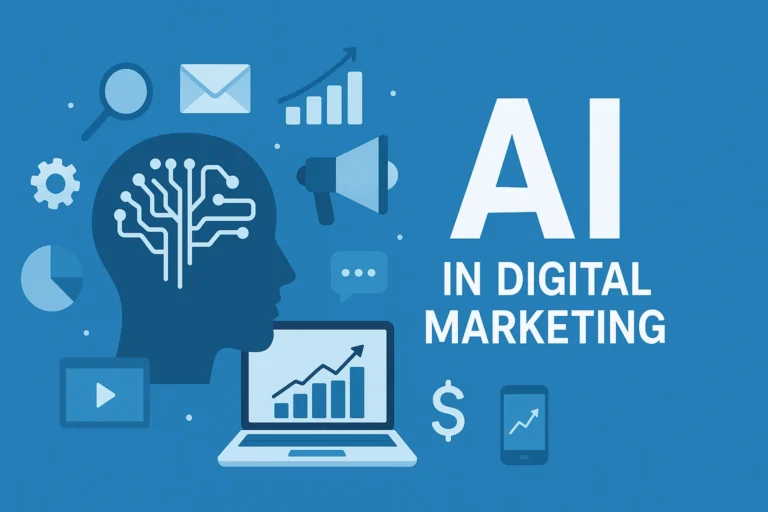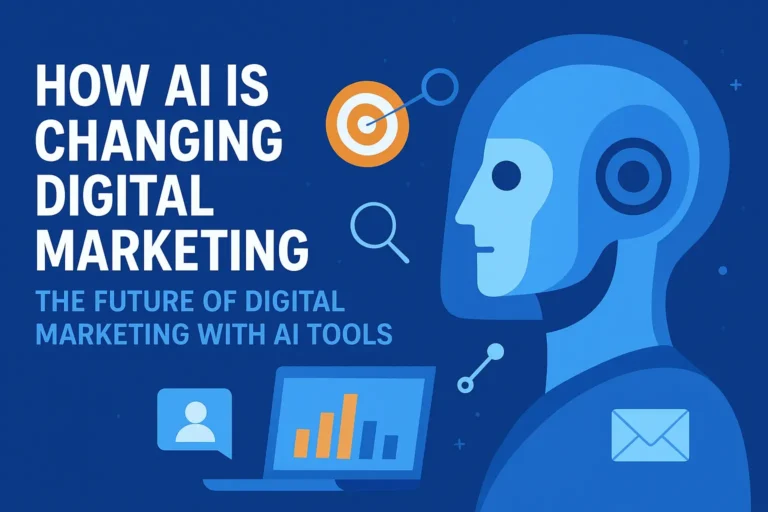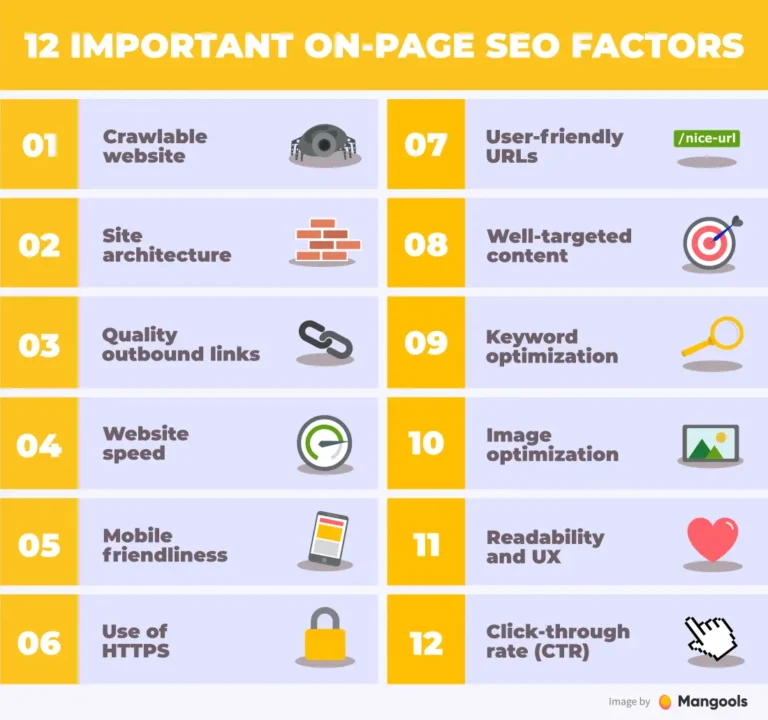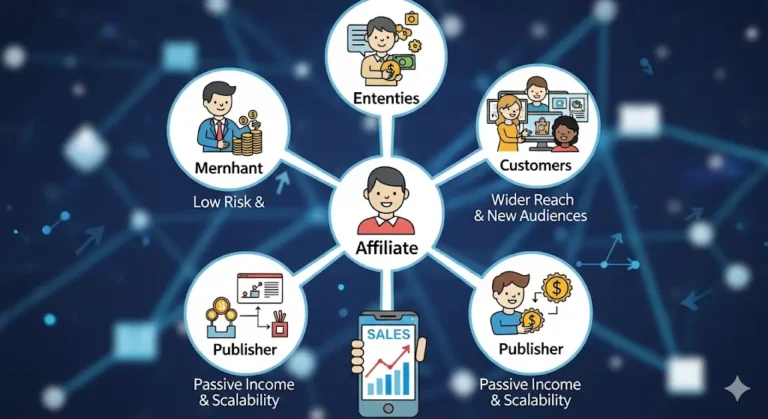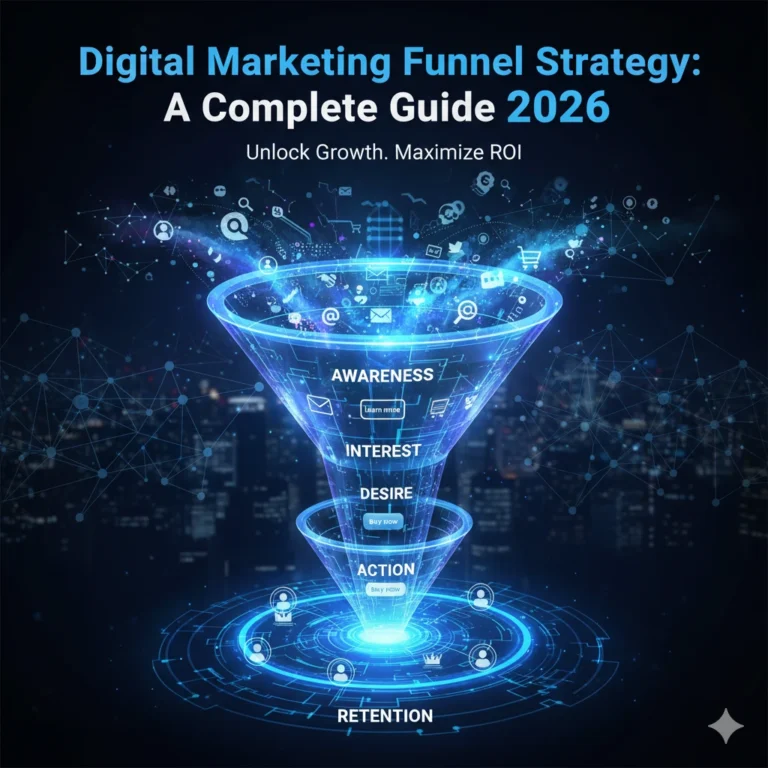Top Digital Marketing Tools for 2025 | Boost Your Strategy
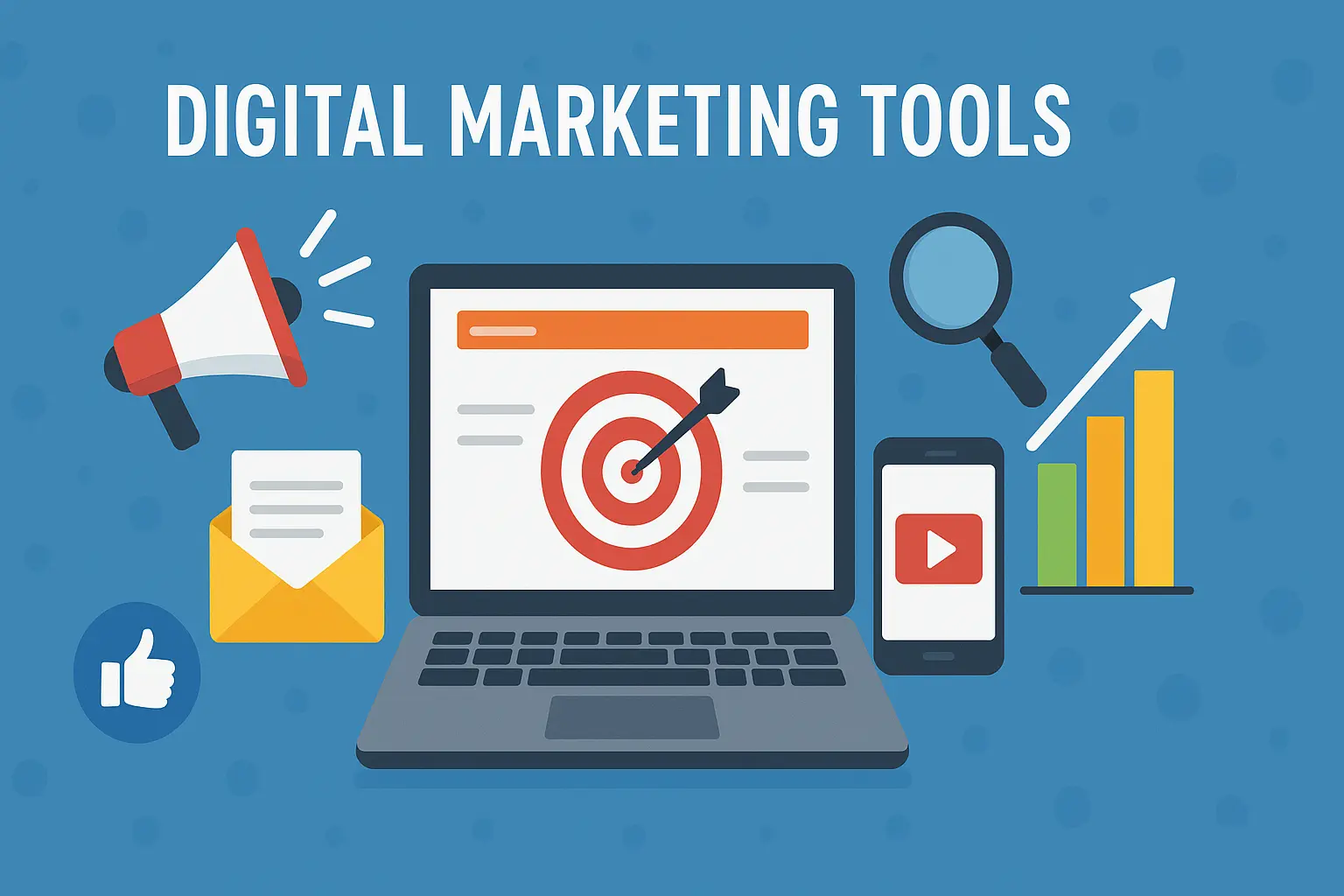
Digital Marketing Tools: Ultimate Guide for 2025
Table of Contents
- Introduction: Why Digital Marketing Tools Matter
- What Are Digital Marketing Tools?
- Top 10 Digital Marketing Tools You Must Know
- Free Digital Marketing Tools to Get Started
- How Digital Marketing Tools Improve SEO
- Automating Campaigns with Marketing Automation Tools
- Social Media Management Tools You Should Use
- Essential Analytics Tools for Data-Driven Decisions
- Content Planning and Creation Tools
- Email Marketing Tools for Maximum Impact
- Conclusion: Pick the Right Digital Marketing Tools
1. Introduction: Why Digital Marketing Tools Matter
Digital marketing tools are crucial for businesses to stay competitive in 2025. These tools help marketers automate processes, analyze data, improve SEO, and manage campaigns effectively. Whether you’re a beginner or a seasoned marketer, having the right set of digital marketing tools can accelerate your growth, boost efficiency, and drive more leads.


2. What Are Digital Marketing Tools?
Digital marketing tools refer to software or platforms designed to help marketers optimize online strategies. These tools cover areas like SEO, social media management, email campaigns, analytics, and marketing automation. Popular tools include Google Analytics, Mailchimp, Ahrefs, HubSpot, SEMrush, and Hootsuite. They allow marketers to perform tasks faster and make data-backed decisions.
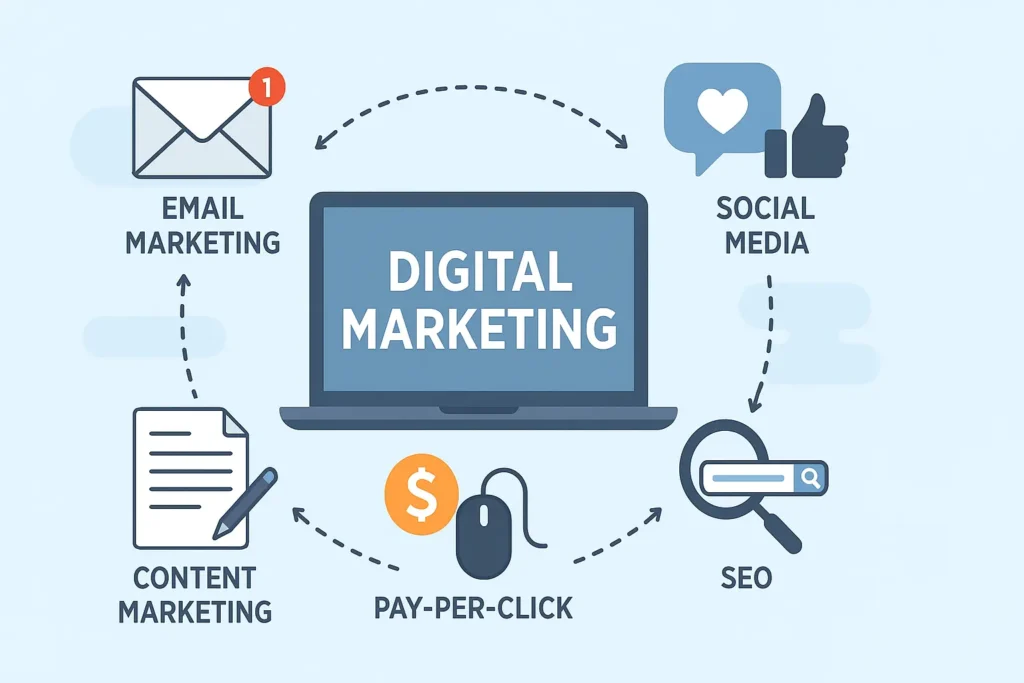
3. Top 10 Digital Marketing Tools You Must Know
Here’s a list of the top digital marketing tools that every marketer should explore:
- Ahrefs—Powerful for SEO, backlink analysis, and keyword research.
- Google Analytics—essential for tracking website performance.
- Mailchimp—Popular email marketing platform with automation workflows.
- HubSpot—All-in-one platform covering CRM, marketing automation, and content management.
- SEMrush—Great for competitive analysis and SEO audits.
- Hootsuite—Efficient social media scheduling and management tool.
- Sprout Social offers social listening and sophisticated analytics.
- Buffer—Simplifies social media scheduling and audience engagement.
- Hotjar—Heatmaps and user behavior analytics for better site optimization.
- Google Search Console—essential for website indexing and SEO performance
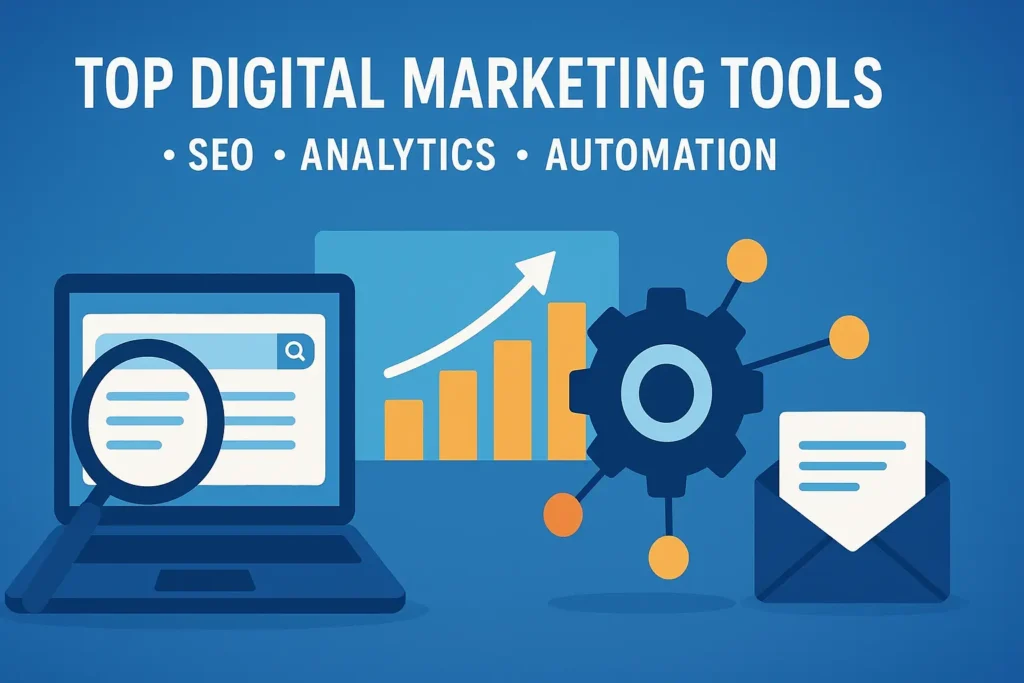
4. Free Digital Marketing Tools to Get Started
Not every tool has to cost a fortune. Here are some free digital marketing tools you can start with:
- Google Analytics—Free web analytics tool.
- Google Search Console—Free SEO and site audit tool.
- Canva—Free graphic design tool perfect for content creation.
- Ubersuggest—a free keyword research tool by Neil Patel.
- Hotjar (Basic Plan)—Heatmaps and session recordings.
- Mailchimp (Free Plan)—Basic email marketing features
These tools are ideal for beginners or small businesses starting their digital marketing journey.
SEO is one of the most important areas where digital marketing tools shine. Tools like Ahrefs, SEMrush, Moz, and Google Search Console help marketers conduct:
- Keyword Research – Identify profitable keywords with high search volume and low competition.
- Site Audit – Analyze website structure, loading speed, and technical SEO issues.
- Backlink Analysis – Evaluate backlink profiles for better link-building strategies.
- Content Explorer—Discover high-performing content ideas.
These SEO tools help marketers track their rankings, fix issues, and improve visibility.
6. Automating Campaigns with Marketing Automation Tools
Marketing automation tools save time by automating repetitive tasks like email campaigns, social media posts, and lead nurturing. Popular automation tools include:
- HubSpot – Comprehensive automation workflows.
- Marketo—Enterprise-level marketing automation.
- Zoho CRM – Lead generation, customer segmentation, and automated workflows.
- Drip—Advanced email automation and lead nurturing.
These tools help deliver personalized experiences at scale, improving audience engagement.
7. Social Media Management Tools You Should Use
Managing multiple social accounts manually is tough. Social media management tools streamline scheduling, monitoring, and reporting. Key tools include:
- Hootsuite—Manage multiple social channels from one dashboard.
- Buffer—Simple content scheduling and performance tracking.
- Sprout Social – Deep analytics, social listening, and engagement features.
- Buzzsumo—Influencer marketing and content curation.
These tools help with audience segmentation, performance tracking, and social media calendar management.
8. Essential Analytics Tools for Data-Driven Decisions
Data is king. Analytics tools help marketers track campaigns, analyze user behavior, and generate reports.
- Google Analytics—Tracks website traffic, audience behavior, and conversions.
- Hotjar – Visualizes heatmaps, session recordings, and conversion funnels.
- Salesforce Analytics—Customer behavior analysis and custom reporting.
- Zoho Analytics—Powerful data analysis and visualization
Custom reports and conversion tracking tools help marketers optimize strategy and prove ROI.
9. Content Planning and Creation Tools
A well-structured content calendar ensures consistent publishing and better engagement. Useful tools include:
- Buzzsumo – Content curation and performance analysis.
- Canva—Design tool for eye-catching visuals.
- Loom—Screen recording for creating quick video content.
- WordPress—CMS for content management.
These tools support content generation, approval workflows, and audience engagement tracking.
10. Email Marketing Tools for Maximum Impact
Email remains a powerful tool for lead nurturing and engagement. Essential platforms include:
- Mailchimp—Easy-to-use email campaign builder.
- Constant Contact—Offers list segmentation and performance reports.
- Drip—Advanced workflows for personalized campaigns.
- Marketo—Enterprise-level email marketing automation
Integration with CRM tools like Salesforce and Zoho CRM helps in tracking engagement and automating follow-ups.
11. Conclusion: Pick the Right Digital Marketing Tools
Choosing the right digital marketing tools is vital for success in today’s fast-paced digital world. Start with free tools like Google Analytics and Canva, then scale up to powerful platforms like HubSpot, SEMrush, and Ahrefs as your business grows. The right combination of SEO tools, automation workflows, analytics, and social media management solutions will boost your efficiency, lead generation, and overall digital strategy.
what are the most effective tools for digital marketing
The most effective tools for digital marketing include Google Analytics for tracking website performance, Ahrefs or SEMrush for SEO and keyword research, and Mailchimp for email marketing automation. Social media management tools like Hootsuite and Buffer also help streamline content scheduling and audience engagement.
how to use digital marketing tools
To use digital marketing tools, first define your marketing goal—like increasing website traffic, improving SEO, or running email campaigns—and select the right tool (e.g., Google Analytics for tracking, Mailchimp for emails, Ahrefs for SEO). Then, set up an account, connect your website or social media, configure settings, and analyze data or automate tasks based on the insights or results the tool provides.
what digital marketing tools are you familiar with
I’m familiar with tools like Google Analytics for tracking website visitors, Mailchimp for sending marketing emails, and Hootsuite for scheduling social media posts. I also use Ahrefs for finding keywords and Google Ads for running online ads.
what are popular digital marketing tools
Popular digital marketing tools are Google Analytics, Ahrefs, SEMrush, Mailchimp, Hootsuite, Canva, and Google Ads. These tools help with tracking website traffic, finding keywords, managing social media, designing graphics, and running ads.
what are the most effective tools for digital marketing
The most effective digital marketing tools are Google Analytics for tracking website performance, Ahrefs or SEMrush for SEO and keyword research, and Mailchimp for email marketing. Tools like Hootsuite or Buffer help manage and schedule social media posts efficiently.

